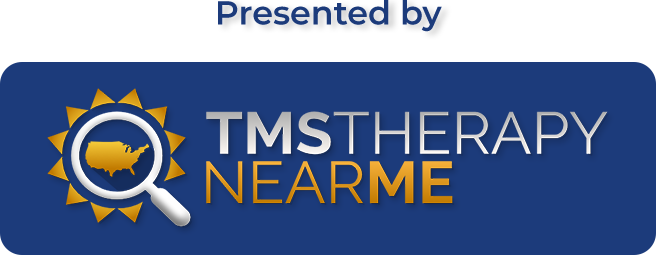Mental health disorders are a prevalent issue worldwide, with millions of people struggling with anxiety, depression, bipolar disorder, and other mental health
conditions. While psychiatric medications can be effective in treating these conditions, they can also have significant side effects and may not work for everyone. Fortunately, there are alternative treatment options available, including Transcranial Magnetic Stimulation (TMS) therapy.
TMS therapy is a non-invasive, drug-free treatment that uses magnetic pulses to stimulate specific areas of the brain. These pulses are generated by a magnetic coil placed on the patient’s scalp. The coil produces a magnetic field that passes through the skull and stimulates the neurons in the targeted areas of the brain. This stimulation can improve the function of these areas, leading to a reduction in symptoms for a range of mental health conditions, including anxiety.
Anxiety
Anxiety is a common mental health condition that affects millions of people worldwide.
It can cause various physical and psychological symptoms, including restlessness, racing thoughts, and excessive worry. Traditional anxiety treatment options include therapy and psychiatric medications, but these methods do not always work for everyone. This is where TMS therapy can be particularly beneficial.
Studies have shown that TMS therapy can be an effective treatment for anxiety.
Repetitive Transcranial Magnetic Stimulation can target the areas of the brain that are involved in regulating mood and anxiety levels. By stimulating these areas, TMS therapy can help to reduce anxiety symptoms, providing relief to those struggling with the condition.
But TMS therapy is not just limited to anxiety treatment. It is effective in treating a range of mental health conditions, including depression, bipolar disorder, depression postpartum, PTSD, Tinnitus, migraines, and OCD.
Depression
TMS Therapy is an effective treatment option for depression. The repetitive transcranial magnetic stimulation can target the prefrontal cortex, an area of the brain that is involved in regulating mood. By stimulating this area, TMS therapy can improve depression symptoms, providing relief to those struggling with the condition. Additionally, TMS therapy does not involve medication and has minimal side effects, making it an appealing option for those who may not have had success with traditional treatments.
Bipolar Disorder
TMS Therapy has also shown promise in treating bipolar disorder. The magnetic pulses used in TMS therapy can target the areas of the brain involved in regulating mood and can help to stabilize mood swings associated with bipolar disorder. TMS therapy has also been shown to improve cognitive function, which can be impaired in individuals with bipolar disorder.
Postpartum Depression
Postpartum depression is a type of depression that can occur after giving birth. TMS Therapy has shown promise in treating postpartum depression by targeting the prefrontal cortex, an area of the brain involved in regulating mood. By stimulating this area, TMS therapy can improve depression symptoms in postpartum women, providing relief and improving the quality of life for both the mother and child.
PTSD
TMS Therapy is an effective treatment option for PTSD. Transcranial magnetic stimulation can target the areas of the brain involved in regulating fear and anxiety levels. By stimulating these areas, TMS therapy can help to reduce the symptoms of PTSD, providing relief to those struggling with the condition.
Tinnitus
Tinnitus is a condition characterized by a ringing or buzzing sound in the ears. TMS Therapy has shown promise in treating tinnitus by targeting the auditory cortex, an area of the brain involved in processing sound. By stimulating this area, TMS therapy can help reduce tinnitus symptoms, providing relief to those struggling with the condition.
Migraines
TMS Therapy has also been shown to be effective in treating migraines. The magnetic pulses used in TMS therapy can target the areas of the brain involved in pain processing. By stimulating these areas, TMS therapy can help to reduce the frequency and intensity of migraines, providing relief to those struggling with the condition.
OCD
TMS Therapy has shown promise in treating OCD. Repetitive Transcranial Magnetic Stimulation can target the areas of the brain involved in regulating compulsions and obsessions. By stimulating these areas, TMS therapy can help to reduce the symptoms of OCD, providing relief to those struggling with the condition. Additionally, TMS therapy has minimal side effects, making it an appealing option for those who may not have had success with traditional treatments.
One of the benefits of TMS therapy is that it is a non-invasive treatment option that does not involve medication. This is particularly beneficial for those who are hesitant to take medication or who have not had success with psychiatric medications in the past. TMS therapy can be a way for people to find real relief from their mental health symptoms without having to rely on medication.
Many TMS treatment programs are covered by insurance, making it an accessible treatment option for those struggling with mental health conditions. Patients receiving TMS therapy will usually continue to see their healthcare provider, who may prescribe medications or recommend other forms of therapy to support their recovery.
TMS therapy is a promising treatment option for those struggling with anxiety and other mental health conditions. It is a non-invasive, drug-free treatment that can target specific areas of the brain involved in regulating mood and anxiety levels. TMS therapy can be particularly beneficial for those who do not respond well to psychiatric medications or who are hesitant to take medication. If you or someone you know is struggling with a mental health condition, find a provider near you today!

